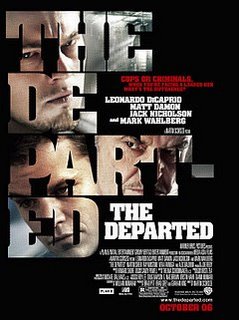

No long list here; the single has long declined in importance and now with the advent of the iPod and both legal and illegal downloading, the prominence of a song that 'leads' is in sharp abeyance. And, of course there are the cases of an admittedly great single being released, the fourth or fifth off the same album, depriving it of its emblematic force as the horse's carcass is being flogged for all its worth. There were a few good singles this past year, and two in particular that will be remembered for a long time and transcended the standing of a merely strong track. A great single does not necessarily have to be a great song, just typifying a moment in time will often do, though it would be hard to argue against the following two tracks being great:
Crazy - Gnarls Barkley
Sitting at a Parisian bar last summer I overheard a drunken Englishwoman ask the barman if he could put on 'that song by Gniles Davis'; her details were a little awry but she knew what she liked. The first single ever to hit number one on downloads alone, and then stayed there for nine weeks, is the sort of thing that Smashee and Nicees would call 'timeless' and there is a truth in that truism. While much modern soul is either content to wallow in the inert navel-gazing destined for Buddha Bar soundtracks to be played in H&M shops all over Europe, this grabs the fine floor-sweeping tradition and goes with it. Straight into things with the opening bassdrums, a string of simple minor chords and a stinging chorus that delivers the song's familiar argument, rescuing it from association with dozens of maudlin power ballads down through the years.
Though the album St. Elsewhere was not so spectacular it was nonetheless a good introduction to a duo possessed of genius and a show that is destined to run and run.
Let's Make Love and Listen to Death From Above - CSS
Canadian Rockers Death From Above sadly expired this year but not before they were subject to the greatest tribute song since Jonathan Richman pressed The Velvet Underground on how they got 'that sound'. It exploded on the net during the summer and though it never charted anywhere its word of mouth success was, well, phenomenal. Sythesizers, theremins, a killer bassline, clunky, ungrammatical lyrics ('you knew my dreams when they were in my head/you knew my secrets, even in bed'), and a middle-eight that invites all manner of silly dancing. Making love to the bonecrunching disco metal of Death From Above over a prolonged period of time might result in something calamitous such as compound fractures or muscular dystrophy but the comehither of lead singer LoveFoxx is sensible enough to propose the two activities one after the other. As if the song couldn't be improved, it was twice, on the remixes by Spank Rock and Diplo, both of which are available on the 12". It has to be heard.


















